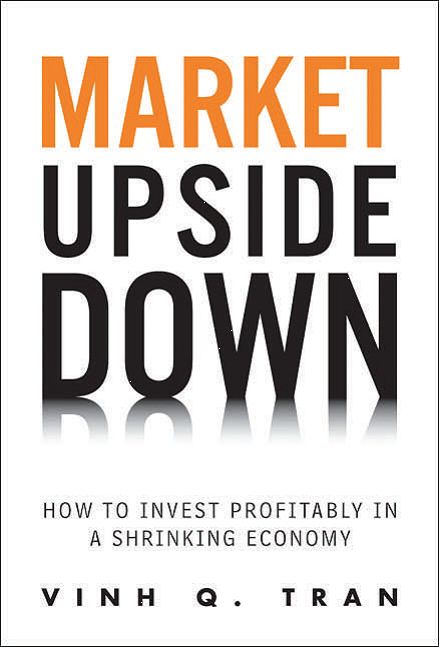May 7, 2010 – “Confidence may be replaced by recognition and fear of even darker days ahead. Without confidence and optimism, the values of the stock certificates will simply evaporate.“
I wrote those words more than six months ago for the introduction to Market Upside Down. In the last few days, as throngs of Greeks took to the streets –as they have done in the past for causes noble or otherwise-- to protest their government’s spending cuts, newspapers screamed out with such headlines as “U.S. markets plunge,” or “Greece fuels fears of contagion in the U.S.”
In one week of chaotic trading, the Dow Jones Industrial Average gave up all the gain that it had painstakingly built up since the beginning of the year. Such has been the typical reaction of markets advancing on mere confidence and optimism. One gentle push and the house of cards unravels.
For in the scheme of the world economy, Greece is a small country. Its GDP is about one-tenth of Germany’s, and is little more than half the size of the retirees’ state of Florida’s. Yet, “Wall Street panics as Greece protests flare,” As PIMCO’s Bill Gross said, “Up until last week there was this confidence that nothing could upset the apple cart as long as the economy and job growth was positive. Now, fear is back in play.”
Sure, the sell-offs in the U.S. stock market (and equities worldwide) reflect the concern that the debt cancer of Greece will spread to the other PIIGS countries. The top 10 U.S. banks account for 96% of the debt exposure to Greece, Ireland, Portugal and Spain, according to Barclays Capital, but their holdings amount to only $176 billion. The Bank of America disclosed that it had $193 million in exposure to Greece's sovereign debt, and $1.1 billion in non-sovereign debt to the country as of March 31. Though not a trivial amount, this sum is only one-third of the Bank’s 2010 first quarter’s profit. Yet, in the last five days, BAC dropped over 10%, twice the Dow Jones’ loss.
Of course, these figures are mere pittance when compared with the trillions of dollars in debt that U.S. banks hold in defunct U.S. residential and commercial mortgages. Add to these amounts the mountain of debt the U.S. government has been piling up. Deutsche Bank estimated that the public debt-to-GDP ratio of the United States would top 100% to reach 133% by 2020, the same as Greece’s 130% currently.
What will happen upon recognition that the U.S., and other countries such as the U.K. and France, are heading down the path Greece (and Japan in the last 20 years) have been traveling?


